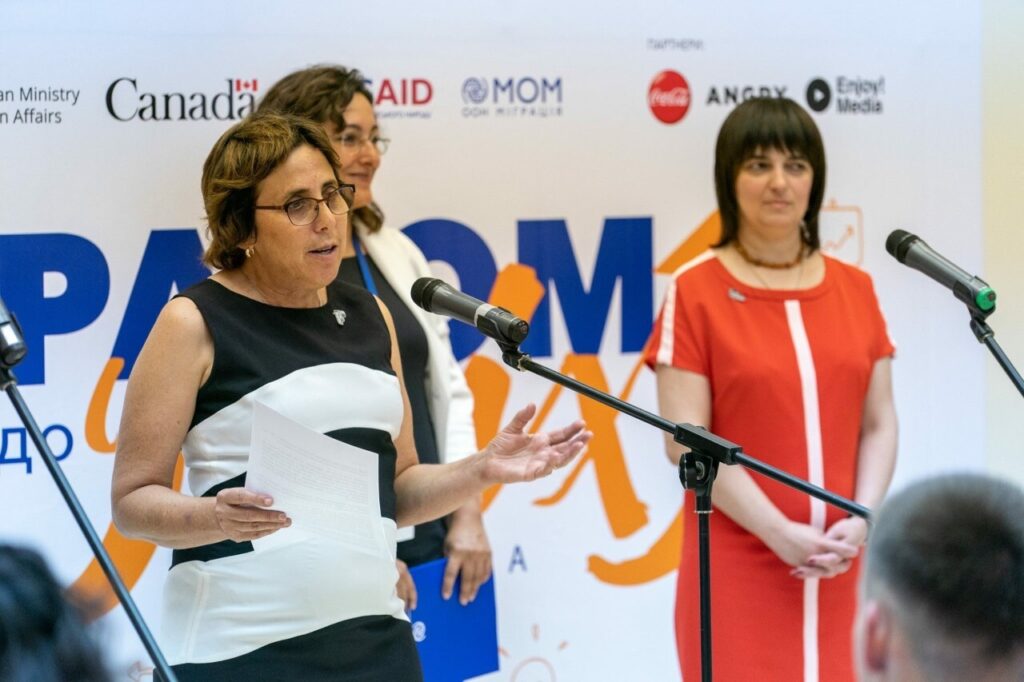Five questions with Donna Kerner, Creative’s new peacebuilding expert
Donna Kerner recently joined Creative as its new Senior Technical Advisor for Conflict and Peacebuilding for the Transitions Practice Area.
Donna has over 25 years of technical expertise, including disaster response, stabilization, political transition, democracy & governance, election security, disarmament, demobilization, and reintegration in conflict and post-conflict countries.
Donna’s global experience includes time spent in Ecuador, Bolivia, El Salvador, Guatemala, Honduras, Ukraine, Moldova, Haiti, South Sudan, Afghanistan, Iraq, Liberia, Burundi, Uganda, Democratic Republic of Congo, Macedonia, Kosovo and Croatia. She has worked at USAID, the State Department, the Organization for Security and Cooperation in Europe, the International Organization for Migration and with international NGOs and program implementers.
What motivates you to take on these herculean programs?
What motivates me is the privilege to work on seemingly intractable problems and to make positive changes in people’s lives. It’s that simple.
How did you get to know Creative?
I’ve known Creative for about 20 years. I’ve been up close to Creative’s work in many fragile and conflict locations. Even though I wasn’t in the Creative family until now, I’ve been so proud of Creative’s work and have made lifelong friends with many people in the company.
You’ve known Creative for several decades. Tell me about one instance in which you think Creative did a great job implementing a program, particularly in a challenging environment.
For me, the one program that sticks out in my mind is the USAID/OTI Liberia Transition Initiative. Liberia had been ravaged by years and years of civil war, and there were almost no government services for over a decade. So, LTI helped the transitional government and the new government restore the functioning of basic services and renew people’s faith in the government. LTI’s focus was on small grants, with an emphasis on life skills training for war-affected youth and community-focused reintegration of former fighters and returnees. This enhanced peace through non-formal education and accelerated learning for overaged youth and young adults. LTI worked closely with the Ministry of Education on the design of the accelerated learning curriculum. We also worked on community-based conflict resolution, transitional justice, good government and good governance. Creative was really exceptional in that it combined education and peace into a single focus.
Tell me about how you address conflict.
We need to have a better understanding of the political context and what’s driving violence so we can better anticipate and prevent conflict and then transform these conflicts into positive change. When we promote dialogue and collaboration among civil society, communities and multiple levels of government, we need to clearly understand the sources of conflict and to identify political and potential solutions for promoting social cohesion, peace and resilience.
How do we do that?
We advance locally-led development to support local actors and key institutions to set their own agendas and work. Our work is to help with their solutions and bring capacity, leadership, and resources to bear. It’s very people-centric and localized. I think that it’s extremely important now more than ever to use this approach to conflict resolution.
What do you see on the radar?
Violent political conflicts are complex, increasingly protracted and involve more non-state actors and regional and international actors than ever before. What we see in Israel, the West Bank and Gaza is a prime example.

